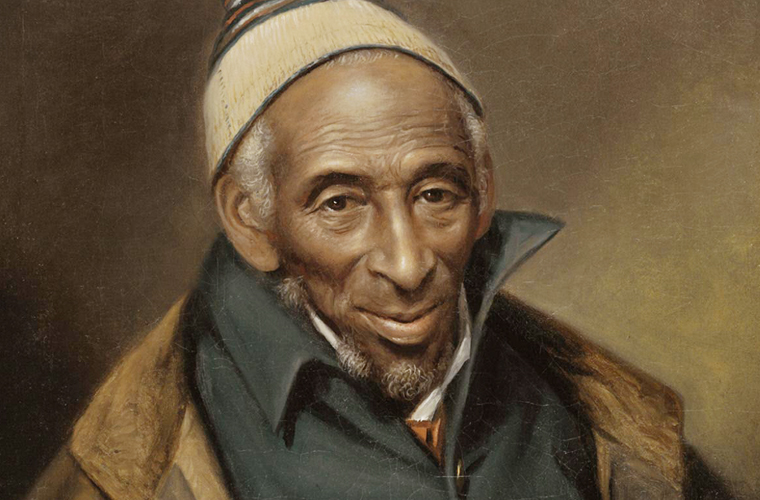Born in Guinea in West Africa, Mamout (c. 1736–1823) was enslaved at age 16. Accounts report that he was educated, as he could read and write in Arabic before his capture, and once he came to the U.S. he learned to speak English. In America, he was sold to Samuel Beall in Takoma Park, MD., and was later inherited by Beall’s son and brought to Georgetown.
Thrifty and hard-working, Yarrow was allowed to earn money on the side even as a slave. Once free, he continued making bricks, charcoal, and baskets and doing other work. He saved his money, bought land and lived in a log house at what is now 3324 Dent Place NW — the only property in the United States “known to have been owned and occupied by a slave brought from Africa,” according to Johnston.
Mamout was freed at age 60. He chose to remain in Georgetown, where he became known for his work as a brickmaker, basketweaver and more—a jack-of-all-trades. After saving his earnings and purchasing stock at the Columbia Bank of Georgetown, Mamout bought property on Dent Place. In 2015, this property was excavated to learn more about Mamout’s history.

